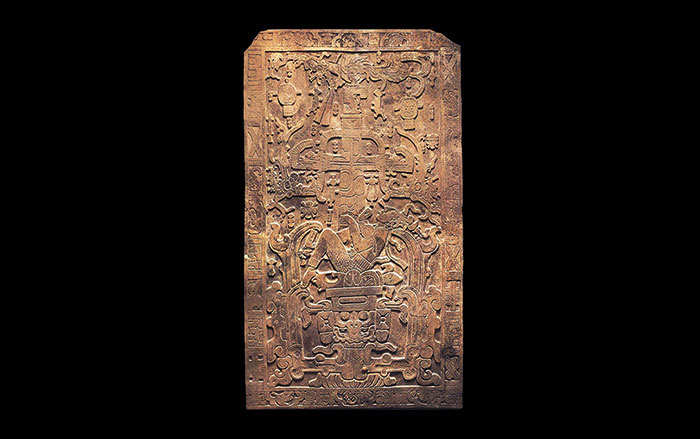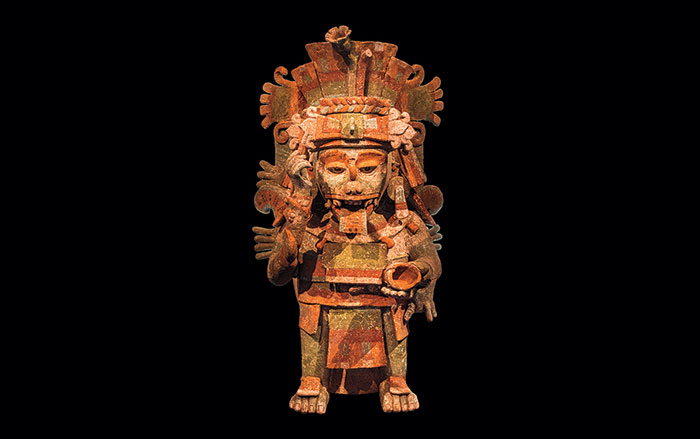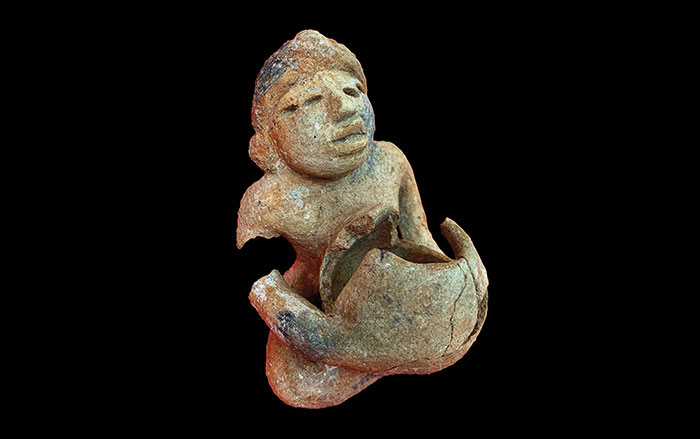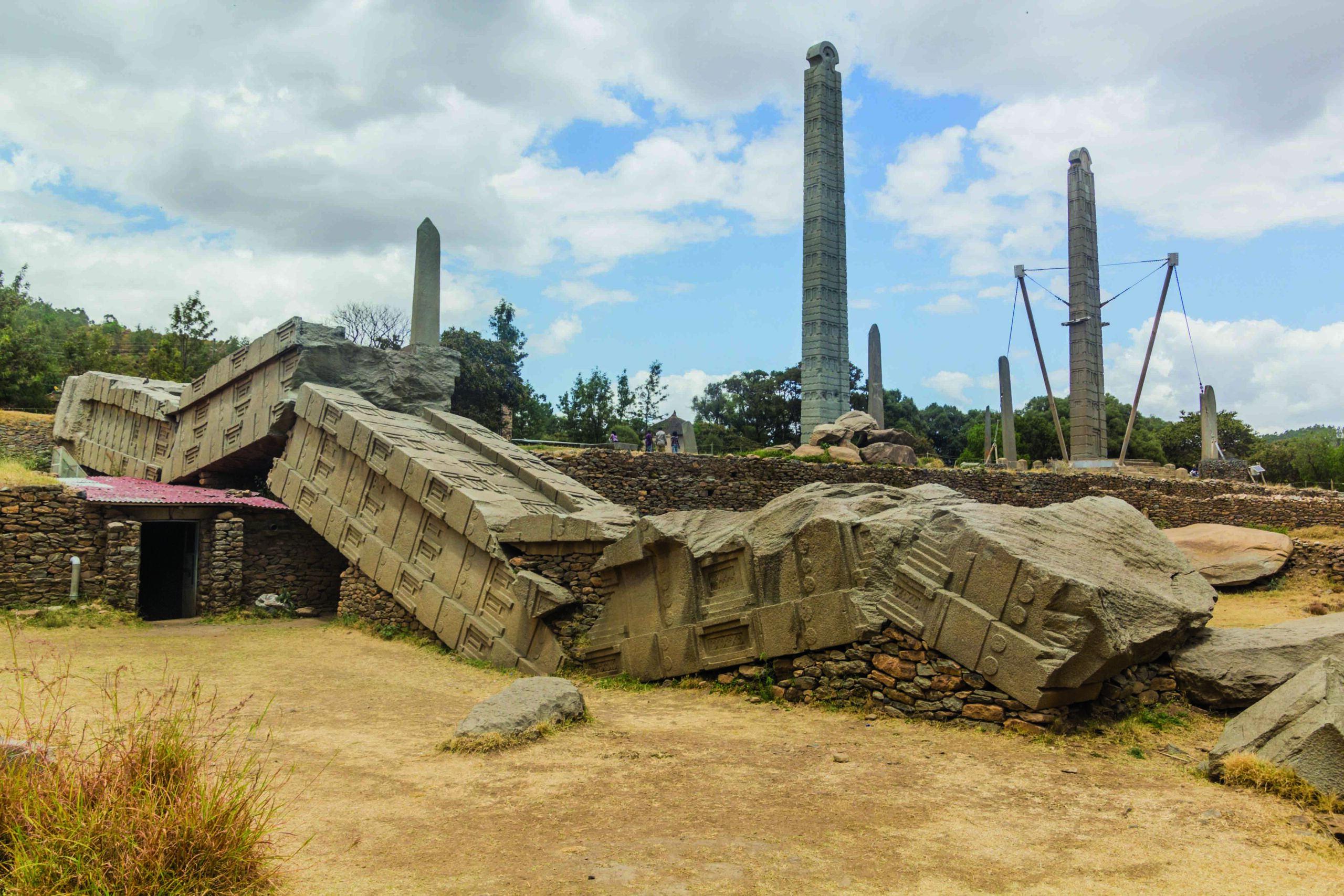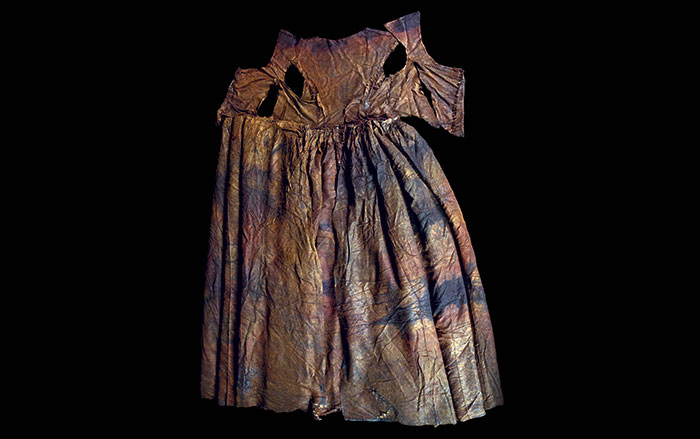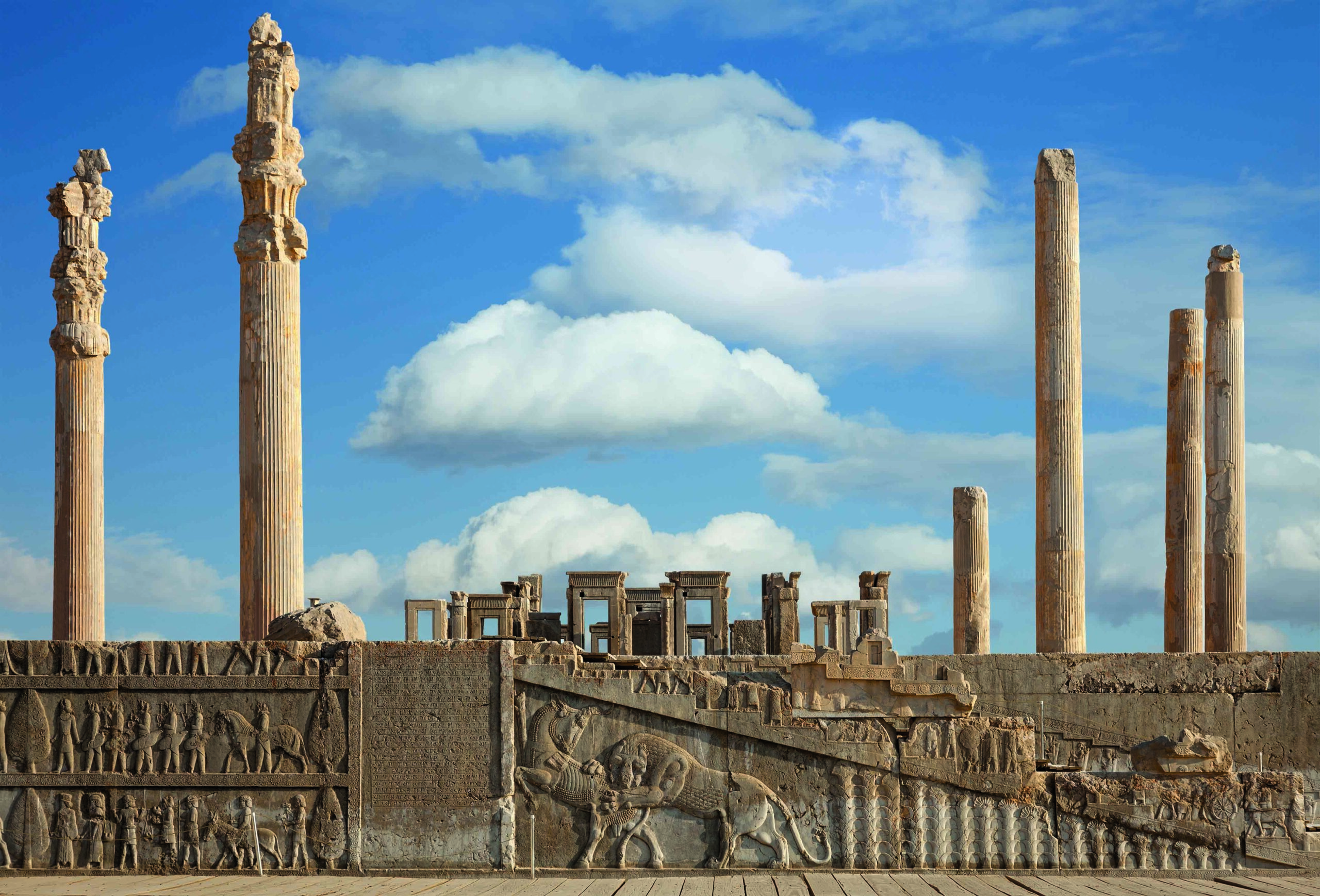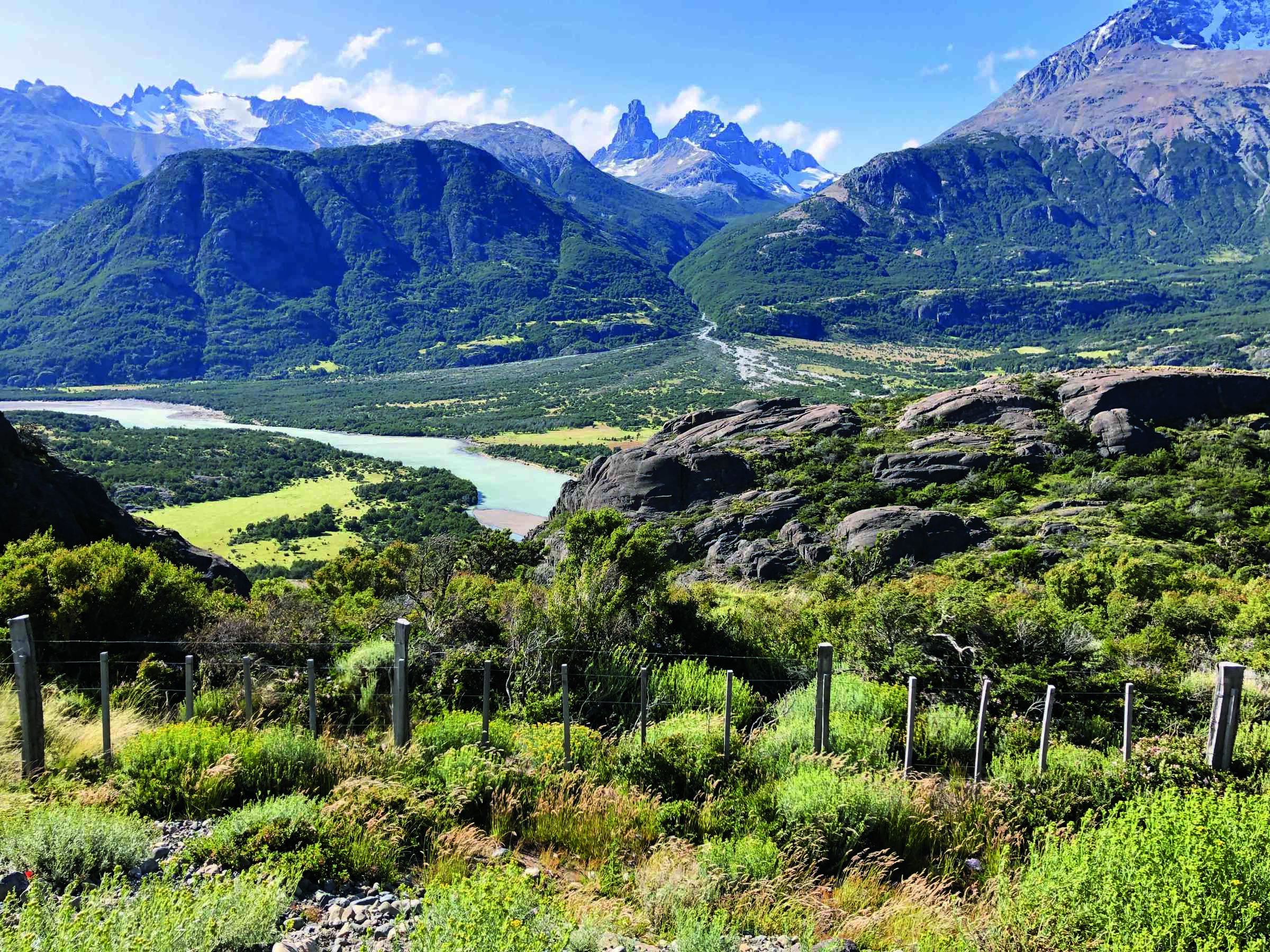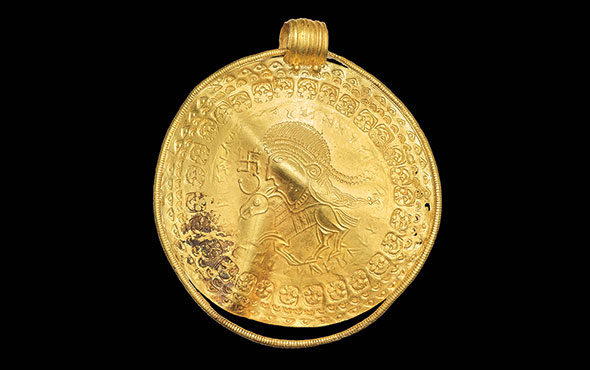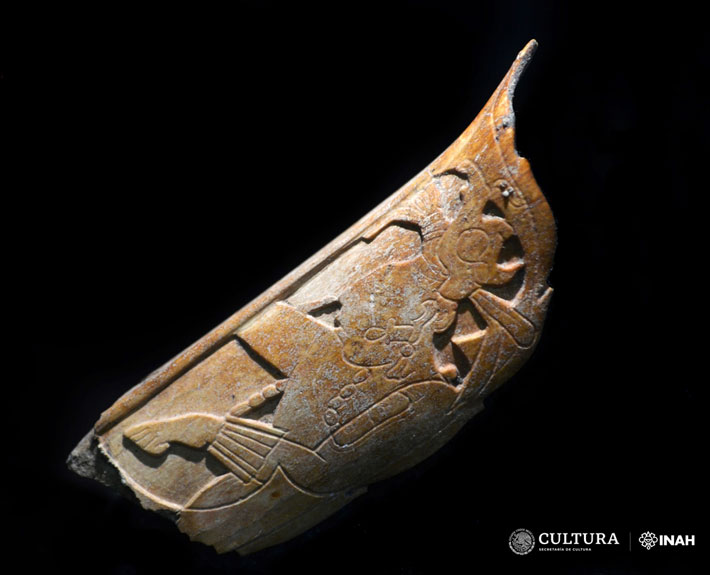
CHIAPAS, MEXICO—According to a report in The Art Newspaper, archaeologists from Mexico's National Institute of Anthropology and History (INAH) uncovered a nose ornament carved from human bone while conducting conservation work in the palace at the ancient Maya city of Palenque. The artifact, which measures about 2.3 by 2 inches, is fashioned from a distal tibia fragment and was found in what researchers believe is a ritual deposit dating to A.D. 600 to 850 alongside seeds, coal, obsidian blades, and animal bones. INAH director Arnoldo González Cruz said that Maya priests would have likely worn the ceremonial ornament on the bridge of the nose to represent the elongated head of the god K'awiil, who was linked with lightning and fertility and often depicted as a personification of an ear of corn. Intricate engravings on the object show a man wearing a headdress and beaded necklace whose arm bears the Maya glyph for "darkness." González Cruz added that the figure is carrying a bundle that is typical in funerary scenes. To read about nasal prostheses and other elements of Maya dress and jewelry, go to "From Head to Toe in the Ancient Maya World."


